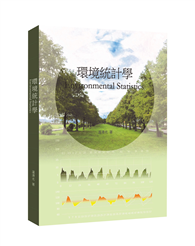This book explores the effects of the previously ignored factors of path dependence and product features on technology acceptance with a focus on robo-advice. A newly developed model introduces path dependence to technology acceptance research allowing to explain previously unaccountable effects. An empirical test of the model using data from Germany and the USA elicits that path dependence influences the attitudes towards and demand for robo-advice. A process consisting of a market survey, a choice-based conjoint analysis, and a test in a technology acceptance model allows the structured investigation of the effects of product features on the demand for robo-advice. The results show that selected product features have effects on the demand for robo-advice and that it is essential to establish these effects empirically.
| FindBook |
有 1 項符合
Technology Acceptance, Path Dependence, and the Demand for Robo-Advisory Services的圖書 |
 |
Technology Acceptance, Path Dependence, and the Demand for Robo-Advisory Services 作者:Horn 出版社:Springer Gabler 出版日期:2024-06-11 語言:英文 規格:平裝 / 普通級/ 初版 |
| 圖書館借閱 |
| 國家圖書館 | 全國圖書書目資訊網 | 國立公共資訊圖書館 | 電子書服務平台 | MetaCat 跨館整合查詢 |
| 臺北市立圖書館 | 新北市立圖書館 | 基隆市公共圖書館 | 桃園市立圖書館 | 新竹縣公共圖書館 |
| 苗栗縣立圖書館 | 臺中市立圖書館 | 彰化縣公共圖書館 | 南投縣文化局 | 雲林縣公共圖書館 |
| 嘉義縣圖書館 | 臺南市立圖書館 | 高雄市立圖書館 | 屏東縣公共圖書館 | 宜蘭縣公共圖書館 |
| 花蓮縣文化局 | 臺東縣文化處 |
|
|
圖書介紹 - 資料來源:博客來 評分:
圖書名稱:Technology Acceptance, Path Dependence, and the Demand for Robo-Advisory Services
內容簡介
作者簡介
Dr. Maximilian Horn studied economics at the Universities of Bonn and Siena as well as international management at the University of Cologne and the Indian Institute of Management Calcutta. In addition to his work as a management consultant, he completed his doctorate under Prof. Dr. Martin Missong at the University of Bremen.
|











